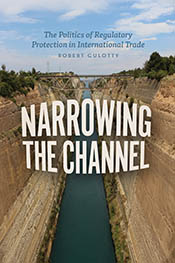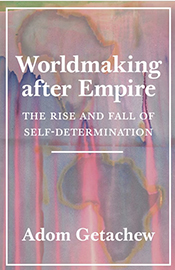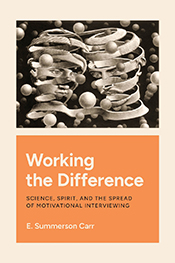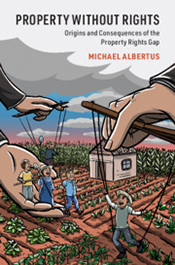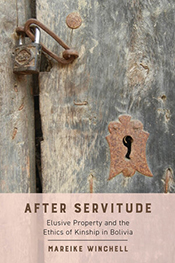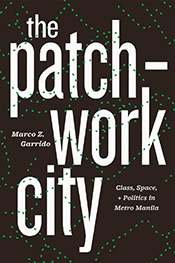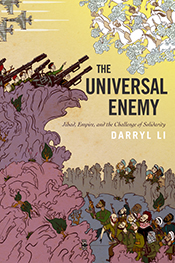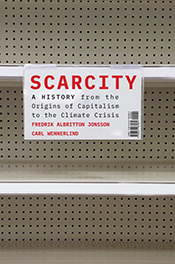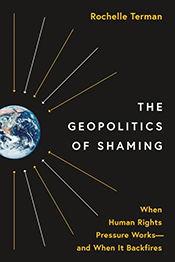Book Workshop Supported Publications
Narrowing the Channel: The Politics of Regulatory Protection in International Trade
Robert Gulotty, Associate Professor of Political Science
Over the past few decades, great strides have been made in forums like the World Trade Organization to increase international commercial cooperation by lowering tariffs. However, little has been done to address non-tariff barriers to trade. Robert Gulotty’s book manuscript, Narrowing the Channel, explores the persistence of regulatory barriers to trade in the international system. Based on quantitative and qualitative analyses of trade negotiations in the United States and the European Union, Professor Gulotty shows that large multinational corporations benefit from regulatory barriers because regulations raise production costs, preventing smaller firms from entering international markets. This book demonstrates that international economic integration can actually lead to less, rather than more, economic cooperation as firms compete for market share.
Narrowing the Channel was published by The University of Chicago Press Books in January 2020.
Worldmaking After Empire: The Rise and Fall of Self-Determination
Adom Getachew, Professor of Political Science and Race, Diaspora & Indigeneity at the University of Chicago.
Worldmaking after Empire traces the struggles of anticolonial nationalists like Eric Williams, Kwame Nkrumah, Julius Nyerere, and Michael Manley to redefine the principle of ‘self-determination’ at the height of decolonization. To end their dependence on their former colonizers and upend the racial hierarchy, these leaders attempted to change international law while forming regional federations to strengthen their demands for an egalitarian global economy. Offering a rich alternative history of anticolonial and nationalist political thought, Professor Getachew's book shows that creating an independent nation-state is but one element of a more expansive vision of self-determination.
Worldmaking After Empire: The Rise and Fall of Self-Determination was published by Princeton University Press in April 2020. The book won the Caribbean Philosophical Association: Frantz Fanon Prize, the African Studies Association Best Book Prize, the American Political Science Association Foundations of Political Theory Section: First Book Award, National Conference of the Black Political Scientists: W.E.B Du Bois Distinguished Book Award (co-winner), Politics & History Section of the American Political Science Association: J. David Greenstone Book Prize (co-winner), and the International Studies Association Theory Section: Best Book. It was also one of the Foreign Affairs’ Best Books of 2020.
Working the Difference: Science, Spirit, and the Spread of Motivational Interviewing
E. Summerson Carr, Professor of Anthropology and of Social Sciences in the College; Professor, Crown Family School of Social Work, Policy and Practice; Faculty Affiliate of Comparative Human Development and Gender Studies
In Working the Difference E. Summerson Carr documents the growth of a behavioral therapy known as Motivational Interviewing and its spread beyond American borders. Professor Carr’s examination of training materials, interviews, and recordings collected over five years of ethnographic field work reveals that Motivational Interviewing is presented as a universal and scientific method of changing individual behavior, yet is imbued with distinctly American ideological values. Practitioners of Motivational Interviewing have a quasi-religious commitment to the therapy that springs from its foundation in ideals of Democracy, Protestantism, and Pragmatism.
Working the Difference was published by the University of Chicago Press in September 2023.
Property Without Rights: Origins and Consequences of the Property Rights Gap
Michael Albertus, Professor of Political Science, Deputy Dean
Over 30 percent of countries have implemented major land reforms in the last century that have reallocated property and impacted over one billion people, but rarely given beneficiaries property rights that could support economic and social transformations. In spite of the well-recognized potential of land reform to generate both efficiency and welfare gains, why does land reform so often fail to achieve these aims? In some countries, such as South Korea and Japan, land reform fundamentally restructured economies and social relationships, launching them to the forefront of the globalized economy. In other countries, such as Mexico and Peru, major land reforms hobbled agricultural productivity, stunted urbanization and economic transformation, and trapped rural dwellers in relations of dependence on the state for decades or more.
This book seeks to understand this divergence by examining, first, the origins of the gap between land reform and property rights granted over reformed land, and second, the long-term implications of land reform and property rights over reformed land for key development outcomes such as economic growth, the provision of public education, the political integration of historically excluded social groups, and social stability.
Through extensive field research, collaboration with land reform agencies, archival work, and analysis of secondary sources, Michael Albertus argues that the key to understanding the limits and potential of land reform rests in recognizing that many major land reform programs of the last century deliberately left a legacy of highly incomplete rural property rights for political reasons. This book examines how typically authoritarian rulers that implement land reform use it to attack their political foes and control their populations rather than to foster capital accumulation or rural productivity.
Property Without Rights: Origins and Consequences of the Property Rights Gap was published by Cambridge University Press in January 2021.
After Servitude: Elusive property and the Ethics of Kinship in Bolivia
Mareike Winchell, Assistant Professor, Department of Anthropology, London School of Economics and Political Science
In the rural Bolivian province of Ayopaya, agrarian engineers, indigenous farmers, Mestizo mining bosses, and rural workers navigate the racial hierarchies based in injurious pasts and histories of forced agrarian labor. Property remains elusive and Quechua people address hierarchies by demanding aid from Mestizo elites or, when that fails, through acts of labor militancy. Property ownership does not detach land from people or present from past with the kin of both masters and servants insisting that ethical debts from earlier racial violence spam across epochs and formal land sales. Professor Winchell finds a vision of justice rooted in popular demands that wealth remain beholden to the region’s agrarian past and the challenges that property confronts as both an extractive paradigm and a means of historical redress.
After Servitude: Elusive Property and the Ethics of Kinship in Bolivia was published by University of California Press in January 2022.
The Patchwork City: Urban Fragmentation and Populism in Manila
Marco Garrido, Associate Professor of Sociology
The Patchwork City explores the role of spatial changes in transforming the nature of class relationships in Manila. Marco Garrido argues that, during the 1980s, new urban planning practices and widening social inequality combined to segregate lower-class slum residents from middle-class enclave residents, heightening class consciousness in the city. The book traces the processes connecting segregation and class division to political contention as the two classes have become susceptible to divergent political appeals -- populist on the one hand, authoritarian on the other. The book is focused on Manila, but Professor Garrido uses the case to tell a larger story about the spatial and social transformations occurring in cities across the Global South.
In 2018-2019, CISSR also funded a monograph enhancement for this manuscript.
The Patchwork City: Class, Space and Politics in Metro Manila was published by The University of Chicago Press in August 2019. The book won the 2020 American Sociological Association (ASA) Global and Transnational Sociology Section: Best Scholarly Book Award (co-Winner), ASA Political Sociology Section: Distinguished Contribution to Scholarship Book Award for 2020, ASA Community and Urban Sociology Section: Robert E. Park Award, ASA Asia and Asian American Section: Asia/Transnational Book Award for 2020, and the Society for the Study of Social Problems: Global Division Book Award.
The Universal Enemy: Jihad and Empire after the Cold War
Darryl Li, Associate Professor of Anthropology and Social Sciences in the College; Lecturer in Law
In the U.S.-dominated world order of recent decades, there has been no figure more ubiquitous and vexing than that of the Islamist "foreign fighter" waging jihad in various war zones, from Somalia to the Philippines, Afghanistan to Chechnya. Such fighters have come to stand in for a rejection of the very idea of universalism itself, through their disregard for national borders, their rejection of secularism, their violations of humanitarian standards, and their commitment to violence. In a radical departure from previous works on political violence by non-state Islamist actors, Darryl Li argues that pan-Islamist jihads should be understood as universalist projects - lived attempts to implement a vision notionally directed at all of humanity in the face of racial and cultural diversity - that can be productively compared to and contrasted with intervention undertaken in the name of the International Community.
The Universal Enemy is the first ethnographically grounded and theoretically engaged account focusing on contemporary pan-Islamist jihads, focusing on Arabs and other foreign Muslims who joined Bosnian government forces during the country's 1992-1995 war. Unlike books on armed Islamist groups aimed at "understanding the enemy," The Universal Enemy explores the relationship between pan-Islamist jihads and the U.S.-dominated world order in order to shed critical light on both.
The Universal Enemy: Jihad, Empire, and the Challenge of Solidarity was published by Stanford University Press in December 2019. The book won the Society for the Anthropology of Europe 2021 William A. Douglass Prize in Europeanist Anthropology.
Scarcity: Economy and Nature in the Age of Capitalism
Fredrik Albritton Jonsson, Associate Professor of British History, Conceptual and Historical Studies of Science, and the College
In this comprehensive survey of intellectual history, Fredrik Albritton Jonsson and Carl Wennerlind trace the evolution of the concept of economic scarcity across five centuries of European thought, shedding light on its pivotal role in contributing to the contemporary climate crisis.
The authors argue that the foundation of modern economics hinges on a specific perception of scarcity, shaped by influential thinkers such as Francis Bacon, Samuel Hartlib, Alfred Marshall, and Paul Samuelson. According to this perspective, humans must assert control over nature to fulfill their desires. However, Jonsson and Wennerlind contend that this understanding of scarcity represents the costly triumph of ideologies advocating infinite growth, prevailing over traditions that sought to harmonize with nature's constraints. Throughout history, critics including Gerrard Winstanley, Dorothy Wordsworth, Karl Marx, and Hannah Arendt, envisioned alternative ways for humans to interact with nature and the economy. They embraced the idea that it is our desires, not nature, that must be mastered.
Albritton Jonsson and Wennerlind bring these historical debates into our current context, critiquing the notion of infinite growth and advocating for a new economic thinking model to address the pressing climate crisis.
Scarcity was published by Harvard University Press in March of 2023.
The Geopolitics of Shaming: When Human Rights Pressure Works—and When It Backfires
Rochelle Terman, Assistant Professor of Political Science
"The Geopolitics of Shaming" delves into the strategic logic underpinning international human rights enforcement. Rochelle Terman explores the motivations and mechanisms guiding how states penalize violations in other nations, identifying instances where shaming leads to improved human rights conditions and outlining situations where it may backfire.
Drawing on a diverse range of evidence, including large-scale cross-national data, original survey experiments, and detailed case studies, Terman demonstrates that human rights shaming is a deeply political process embedded within strategic relationships. By arguing that existing geopolitical dynamics shape both the causes and outcomes of shaming in global politics, Terman illustrates how adversaries may condemn human rights abuses but often provoke counterproductive responses. Friends and allies emerge as the most effective shamers, yet their reluctance to impose significant sanctions poses a challenge.
Challenging conventional wisdom on the role of norms in global affairs, "The Geopolitics of Shaming" contends that politicization is not a corruption but an integral aspect of the success of the global human rights project.
The Geopolitics of Shaming was published by Princeton University Press in October of 2023.
Criminal Leviathans: How gangs govern, organize crime, and challenge the state from behind bars
Benjamin Lessing, Associate Professor in Political Science; Director, Center for Latin American Studies
"Criminal Leviathans" combines ethnographic observations and quantitative data from case studies in Brazil, El Salvador, Colombia, and the U.S. to unveil the forces driving the ascendance of prison gangs, the ill-advised state policies fostering their expansion, and the potential for reform.
Amidst mass incarceration, sophisticated prison gangs not only adeptly organize within inmate populations but also extend their influence beyond prison walls, directly and indirectly challenging state authority. This phenomenon is conspicuous in regions spanning from Brazil to El Salvador, where prison gangs morph disciplinary institutions into hubs for constructing drug empires, coordinating street crime, and orchestrating terrorist attacks capable of challenging the state itself.
Simultaneously, these gangs assume a governance role, providing order and physical safety for millions of low-income residents in extensive, overlooked peripheries that governments have neglected. Arising from decades of relying on repressive strategies to address underlying social problems, these criminal shadow-governments both resist and support the neoliberal state, creating a persistent specter of non-state authority that undermines the foundations of democratic politics.
Benjamin Lessing delves into how criminals not only govern their illicit organizations but also exert influence over the civilian populations in which they operate, prompting crucial inquiries into the inherent vulnerabilities of state authority and the future of mass incarceration at a time when the deterrent capabilities of the carceral state have waned.
 THE UNIVERSITY OF CHICAGO
THE UNIVERSITY OF CHICAGO


